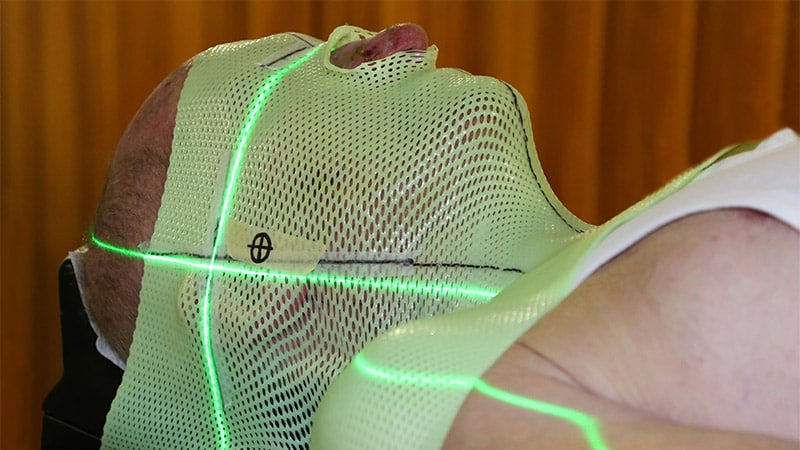Optimal Timing of Postoperative Radiosurgery for Brain Metastases
Core Concepts
Optimal timing for postoperative radiosurgery for brain metastases is crucial for balancing local control and minimizing adverse radiation effects.
Abstract
The study analyzed the optimal timing for delivering postoperative adjuvant stereotactic radiosurgery for brain metastases.
TOPLINE:
Optimal timing for postoperative radiosurgery is between 22 to 30 days after surgery.
Balances local control and minimizes adverse radiation effects.
METHODOLOGY:
Compared RapidRT and StanRT cohorts for local control and adverse radiation effects.
Evaluated timing of radiosurgery at 14, 21, and 30 days post-surgery.
Combined patient populations to assess outcomes.
TAKEAWAY:
Local failure rates highest when radiosurgery given more than 30 days post-surgery.
Post-treatment adverse radiation effects highest within 14 days.
Optimal timing for radiosurgery between 22 to 30 days post-surgery.
IN PRACTICE:
Importance of balancing benefits of early radiation and risk of adverse effects.
Optimal timing for radiosurgery is between 22 to 30 days post-surgery.
SOURCE:
Study published in JAMA Network Open by Evan Bander, MD.
LIMITATIONS:
Retrospective study design may introduce biases.
Study may not be powered to show differences in rare events.
DISCLOSURES:
Funding from the National Cancer Institute.
No relevant financial relationships declared.
Optimal Timing of Postop Radiosurgery for Brain Metastases
Stats
Local failure rates were highest when stereotactic radiosurgery was given more than 30 days from surgery (10.7%).
Post-treatment adverse radiation effects rates were highest in patients who received stereotactic radiosurgery within 14 days (18.1%).
Overall survival at 1 year did not differ significantly by timepoint.
Quotes
"This report demonstrates the empirical importance in balancing the benefits of early radiation on local control and the risk of [post-treatment adverse radiation effects], with the optimal timing seeming to occur between 22 and 30 days." - Study Authors
Key Insights Distilled From
by Megan Brooks at www.medscape.com 11-14-2023
https://www.medscape.com/viewarticle/998451
Deeper Inquiries
How can the findings of this study impact current practices in postoperative radiosurgery for brain metastases
The findings of this study suggest that the optimal timing for delivering postoperative adjuvant stereotactic radiosurgery for brain metastases falls within 22 to 30 days after surgery. This information can significantly impact current practices by providing a specific timeframe that minimizes both local failure and adverse radiation effects. Clinicians can now use this data to guide their treatment decisions and improve outcomes for patients undergoing resection of brain metastases. By adhering to the recommended timing, healthcare providers can enhance local control while reducing the risk of post-treatment adverse radiation effects, ultimately leading to better patient care and quality of life.
What are the potential drawbacks of focusing solely on the timing of radiosurgery in treatment decisions
While focusing on the timing of radiosurgery is crucial for optimizing outcomes, there are potential drawbacks to solely relying on this factor in treatment decisions. One limitation is that individual patient characteristics and tumor biology may influence the effectiveness of radiosurgery, regardless of the timing. Ignoring these factors in favor of a strict timeline could lead to suboptimal outcomes for certain patients. Additionally, placing too much emphasis on timing alone may overshadow other important aspects of treatment planning, such as patient preferences, overall health status, and potential treatment alternatives. Therefore, while timing is a critical consideration, it should be integrated into a comprehensive treatment approach that takes into account the unique needs of each patient.
How can the concept of optimal timing be applied to other areas of medical treatment beyond brain metastases
The concept of optimal timing in medical treatment, as demonstrated in this study on postoperative radiosurgery for brain metastases, can be applied to various other areas of healthcare. For instance, in the field of oncology, determining the ideal timing for chemotherapy administration following surgery or radiation therapy could improve treatment efficacy and patient outcomes. Similarly, in surgical specialties, identifying the most beneficial timeframe for postoperative interventions or rehabilitation protocols can enhance recovery and reduce complications. By conducting research to establish optimal timing parameters in different medical contexts, healthcare providers can tailor treatment plans to maximize benefits while minimizing risks, ultimately advancing the quality of patient care across various disciplines.
0
